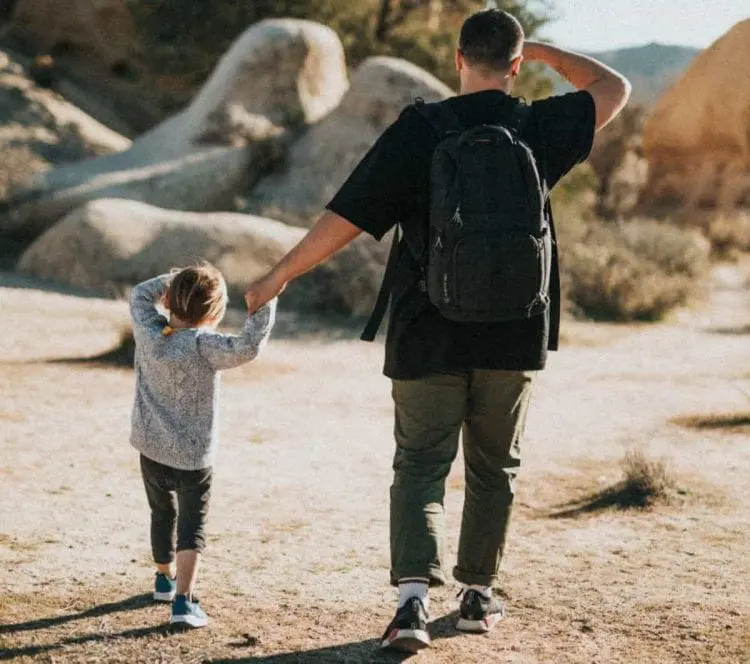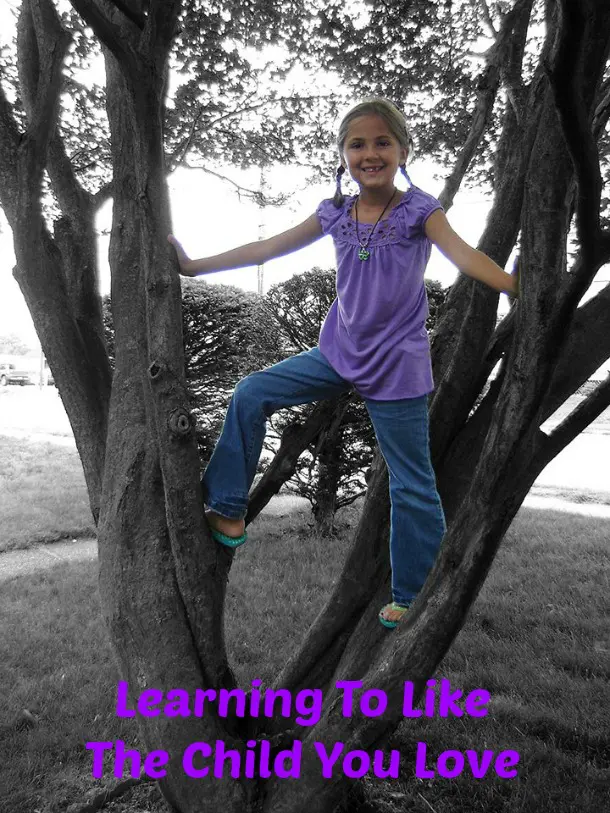Today, I am happy to have Leon Scott Baxter, the author of the newly released parenting book, Secrets of Safety-Net Parenting, share with us his parenting tips on how to really connect with your child even when you are very different people. He’s been an elementary school teacher for eighteen years. He says he has always loved his daughter, but it took him awhile to learn to like her for who she was. This article is about how working together, never giving up, and finally finding understanding brought them so much closer together. If you have an anxious, emotional child, you may sometimes find yourself thinking, “I don’t like my child right now.” If you have ever wondered if it is normal not to like your child, you may relate to this story particularly well.
Learning to Like Your Kid Even When You Can’t Understand Their Behavior
Image Credit: carolinawebdesign
I remember one day when my daughter, Grace was six years old. She used to eat waffles every single morning for breakfast (although I’d offer eggs, oatmeal, French toast and more). And, her waffles had to be just the right level of crispness, but not too dark. I used the toaster like an artist uses a brush to be sure I created the masterpiece she wanted every morning.
On this particular day, the canvas was a bit too dark for her liking. She cried for me to make another waffle, and I wouldn’t. It wasn’t burnt, just not “perfect”. I told her to try one piece. She refused and wailed for a good fifteen minutes. I stood my ground, and eventually distracted her talking about Dora the Explorer and nonchalantly popped a waffle piece in her mouth. She didn’t even realize she was eating it until I told her. She grinned, told me that I had been right, and continued to eat her breakfast with no further incident.
This is what life was like for the first nine years of her life.
My daughter, Grace, and I are two different sides of the same coin. We’ve always been very different. I believe you cry for pain, to get it out, and then you move on. Grace believed you cried when little things didn’t go right, and you did it for quite a long time.
Is it normal to not like your child?
Her obsessive-compulsive disorder had her maneuver the world through her emotions; whereas mine made me very logical. From my point of view, my little girl was extremely irrational. She suffered from anxiety over everything: over not knowing what the author meant in a sentence in her bedtime story, about playing with her peers before school in kindergarten, about the clothes she would wear each day.
I have always loved Grace with all of my heart, but I have to admit that I didn’t always like my child. I would do anything for my daughter, but there were so many times that she wasn’t fun to be around. I’d come home from work and know that there would be irrational fears or perseveration instead of a relaxed time home with the family. And, because I was always pushing against who she was, there’s a good chance, my little girl didn’t always like me either.
There were absolutely times I told myself I was going to throw in the towel. That didn’t mean I was going to leave the family or divorce my wife. And, I would never strike my child or purposely harm her in any way, but there were times when I was just done. I figured it would be easier for me not to get emotionally attached, because it was so hard and so painful. I thought this would be a way to protect myself. Ride it out until she was eighteen, and breathe a big sigh of relief.
I know, it was selfish, but it was also self-preserving. My wife has always had far more patience than I have. She understood Grace, and I knew she could take up where I would be pulling back. But, I couldn’t. I just couldn’t do that. Every time I told myself I was done, I’d jump back in the ring and try again to help her get past her issues.
Find Common Ground To Connect With Your Child

What kept us connected through these times were our commonalities. We both loved to write. She would cheer the Lakers with me (when they used to be cheer-worthy). We would share brainteasers and difficult math problems together. She would exercise with me. And, she loved business, as did I. So, I’d help her develop and run her own businesses. We’d form bonds during these moments.
And, when we’d connect in these ways, I’d see that maybe there was hope. My wife and I would offer her suggestions as to how to respond appropriately to specific incidents. We’d have her role-play so as to know what to do the “next time.” I wrote her a bedtime story about a girl with similar traits as Grace’s. And, eventually, we found her a counselor to help her through her anxiety and emotional issues.
I am so grateful that I hung in there. I’m glad that our common interests brought me back to her, to give it “one more shot.” Why was I given a child who was so different than I am? It turns out that it took me quite some time to realize she was a gift. I needed to learn how to be more patient, how to be more understanding of someone whose shoes I could not fit in. I needed to learn to be persistent, and get back in the ring every time I got knocked out of it, even if that was nine years of getting knocked down. Because, it finally paid off.
Sometimes We Need More Patience As Kids Grow
After nine years of loving her, and Lakers games, and counseling, and bedtime stories, and brainteasers, Grace found her emotional control.
She’s eleven now and during these last two years we have caught up a lot on liking one another. We joke around so much more. We laugh and have meaningful discussions. Furthermore, we choose to spend time together. We still exercise together, and challenge one another with brainteasers, and we talk business a lot. She has learned to control her OCD a bit better, and I have learned to accept her for who she is a little more. We’ve found a happy spot to meet in them middle, and it’s a wonderful place that I wish we had discovered earlier.
Grace will always be anxious and emotional. I’ll always be logical and hard-nosed, but we have learned so much from one another. Today, we no longer just love one another. We really like each other as well! I hope this story helps you to build a better relationship with your child.
Related Posts:
How To Encourage Passion, Philanthropy and Leadership in Kids

